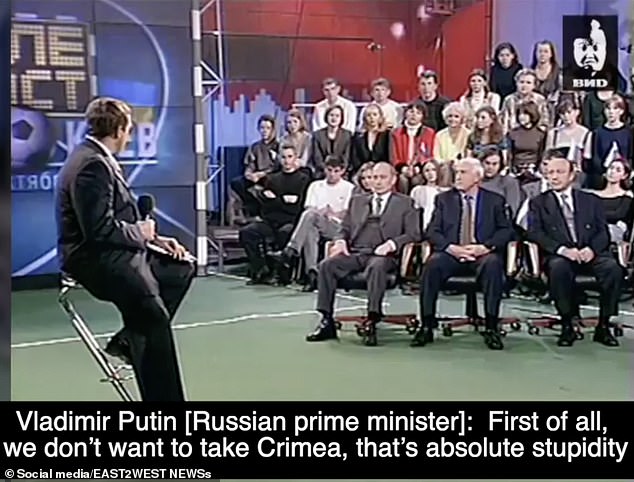Vladimir Putin criticized Russia’s “stupidity” in seizing Crimea from Ukraine and condemned Moscow’s outdated “heavy imperial legacy” in a television interview resurfaced 25 years ago.
The tyrannical dictator, then two months into his first premiership under President Boris Yeltsin, told TV host Alexander Lyubimov, son of former Soviet KGB spy in London Mikhail Lyubimov, that “we don’t want to take Crimea; that is absolute stupidity.”
Contrary to his views a quarter of a century ago, Putin – who ruthlessly rigged elections and killed opponents to remain in charge of the Kremlin – not only seized Crimea in 2014, but also parts of eastern Ukraine.
In 2022, it plunged Europe into its biggest conflict since World War II, trying unsuccessfully to invade the rest of Russia’s near neighbor.
In a V interview resurfaced 25 years ago, Russian President Vladimir Putin said Russia’s capture of Crimea was “absolute stupidity.”
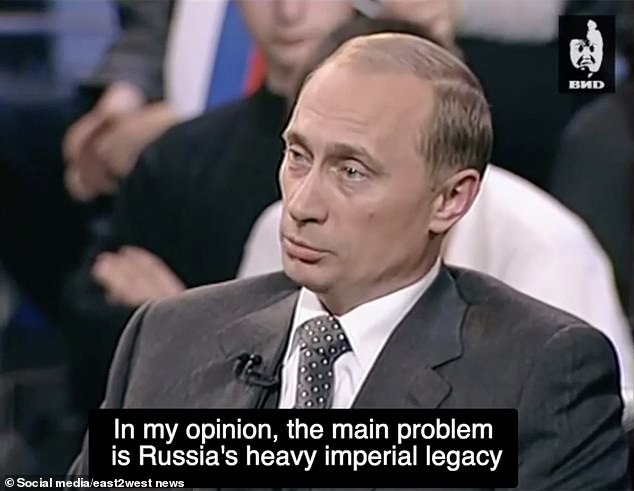
The young Putin also criticized the Russian tendency towards imperialism
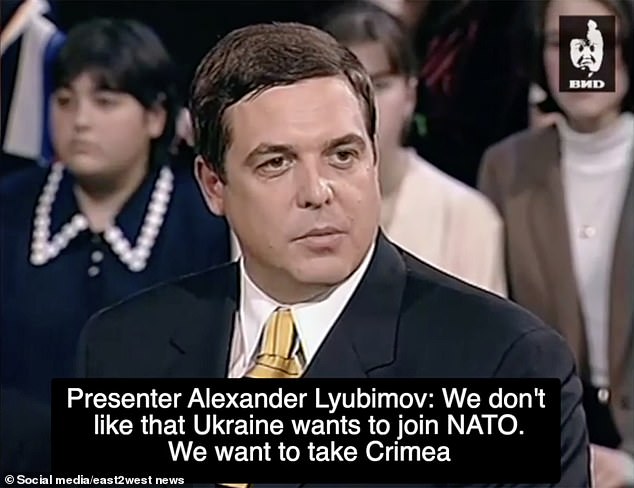
The tyrant dictator, two months after assuming his first premiership under President Boris Yeltsin, was interviewed by TV presenter Alexander Lyubimov, son of former Soviet KGB spy in London Mikhail Lyubimov.
In footage showing Putin’s hypocrisy, which has reappeared on TikTok and X, Lyubimov asked the ruler on October 9, 1999: “We don’t like that Ukraine wants to join NATO.” We want to take Crimea. Or is it just that we can’t agree on money? Gas, sugar… What is our main problem with Ukraine, Vladimir Vladimirovich (Putin)?’
Since then, Putin, now 72, has absurdly argued that Ukraine is not a real country and is populated by Nazis under Western control.
But in 1999, as Russian prime minister, he insisted: “First of all, we don’t want to take Crimea, that’s absolute stupidity.”
“If we start taking something from someone, they will surely take something from us or we will lose something ourselves.”
He was applauded by the audience before telling the Russians: ‘If we start (to explain whether Russia wants to take over Crimea) such redistribution throughout the post-Soviet space, we will never recover from it.’
‘We have 400 disputed territories within the Russian Federation – 400!
“I want everyone to know this.”
Disputes between Russia and Ukraine over sugar and gas production are “secondary issues,” he said.
“There is some kind of field for discussion, but only for discussion, nothing more,” said the young Putin, who was then only 47 years old.
He then criticized the Russian tendency towards imperialism.
“In my opinion, the main problem is Russia’s heavy imperial legacy,” he said to applause in the studio.
He criticized the Russians for their belief in expansionism, something he would later lead.
“For some reason, everyone thinks Russia is still an empire,” he said.
‘Now, those who are applauding, listen to me carefully.
“Everyone thinks Russia remained an empire, and they still treat it as such, but that’s just (not the case).”
It comes after a “peace plan” revealed in July suggested Putin was willing to share Crimea’s sovereignty with Ukraine.
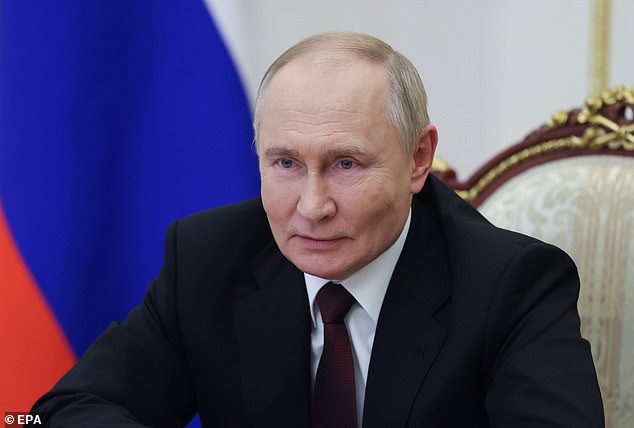
Contrary to his views a quarter of a century ago, Putin not only seized Crimea in 2014, but also large areas of eastern Ukraine. Pictured: Putin at the Kremlin in Moscow, Russia, on October 13, 2024.
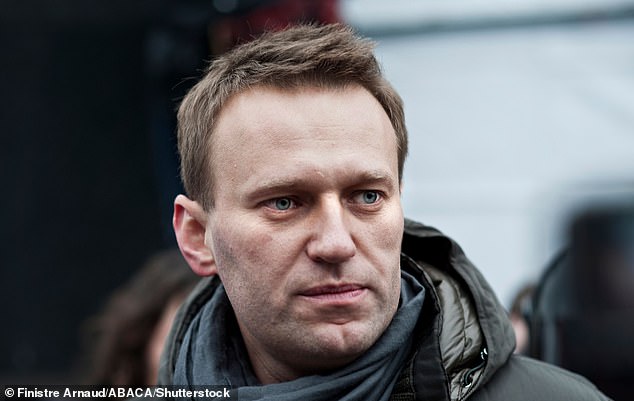
Navalny photographed at a rally in St. Petersburg in 2012. He died at the age of 47 in an Arctic prison camp in February.
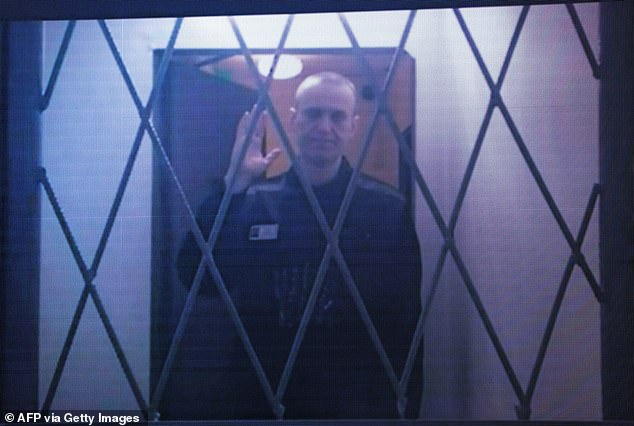
Alexei Navalny seen on a screen via video link from the IK-3 penal colony above the Arctic Circle during a hearing of his complaint about restrictions placed on what books and reading material he can access in prison, at the Court Moscow Supreme Court in January. 11, 2024
The dictator sent his trusted Interior Minister, Vladimir Kolokoltsev, to the United States with new proposals to end the war the dictator started, sources in both Moscow and kyiv said.
Prominent Ukrainian television journalist Dmitry Gordon said he had received details of the package from “our intelligence sources”, while the Russian Telegram channel Gosdumskaya, which claims to have inside sources in Moscow, separately reported on a similar set of Putin’s demands.
The demands were that Ukraine should completely withdraw from the Donetsk and Luhansk regions, both now partially annexed by Russia.
But Russia would hand over the Zaporizhzhia nuclear power plant and the nearby city of Enerhodar to Ukraine.
And it would discuss the possible transfer of the Kherson and Zaporizhzhia regions to Ukrainian control.
Crimea would become a “specially demilitarized administrative territory with dual subordination to Ukraine and the Russian Federation.”
During his rule, the Kremlin has been accused of being behind the deaths of two of his most talented political opponents: Boris Nemtsov, shot dead in 2105, and Alexei Navalny, who died in his hellish Arctic prison this year.
In the months before Nemtsov’s death, he had written detailed reports alleging corruption by Putin and expressed fears that the Russian president would kill him.
Ukraine’s then-president Petro Poroshenko also blamed the Kremlin for Nemtsov’s death, claiming that politicians feared a report that the former deputy prime minister was supposed to share publicly.
Speaking about the report Nemtsov was working on, President Poroshenko said at the time: “Someone was afraid of this, Boris was not afraid.” The murderers and executioners were afraid.
Meanwhile, opposition activists also blamed the Russian president for his death, saying they had “no doubt” it was politically motivated.
The Russian president was also accused of the “murder” of his staunchest critic, who died while serving a 19-year prison sentence in an Arctic penal colony.
Reports have previously claimed that Putin “wants to know everything that happens to Navalny.” All the details, the punishments.’
It has even been claimed that he demanded images of Navalny inside the shadowy colony where he was being held.
Along with reports that Putin showed a sadistic interest in Navalny’s treatment, it was also previously claimed that he requested video footage and live streams of the opposition leader in prison.
Ukrainian President Volodymyr Zelensky joined Western leaders in blaming Moscow for Navalny’s death, pointing to the Putin critic’s disappearance as another reminder of the importance of defeating Russia.
“There should be consequences,” the Foreign Minister told the media then.


